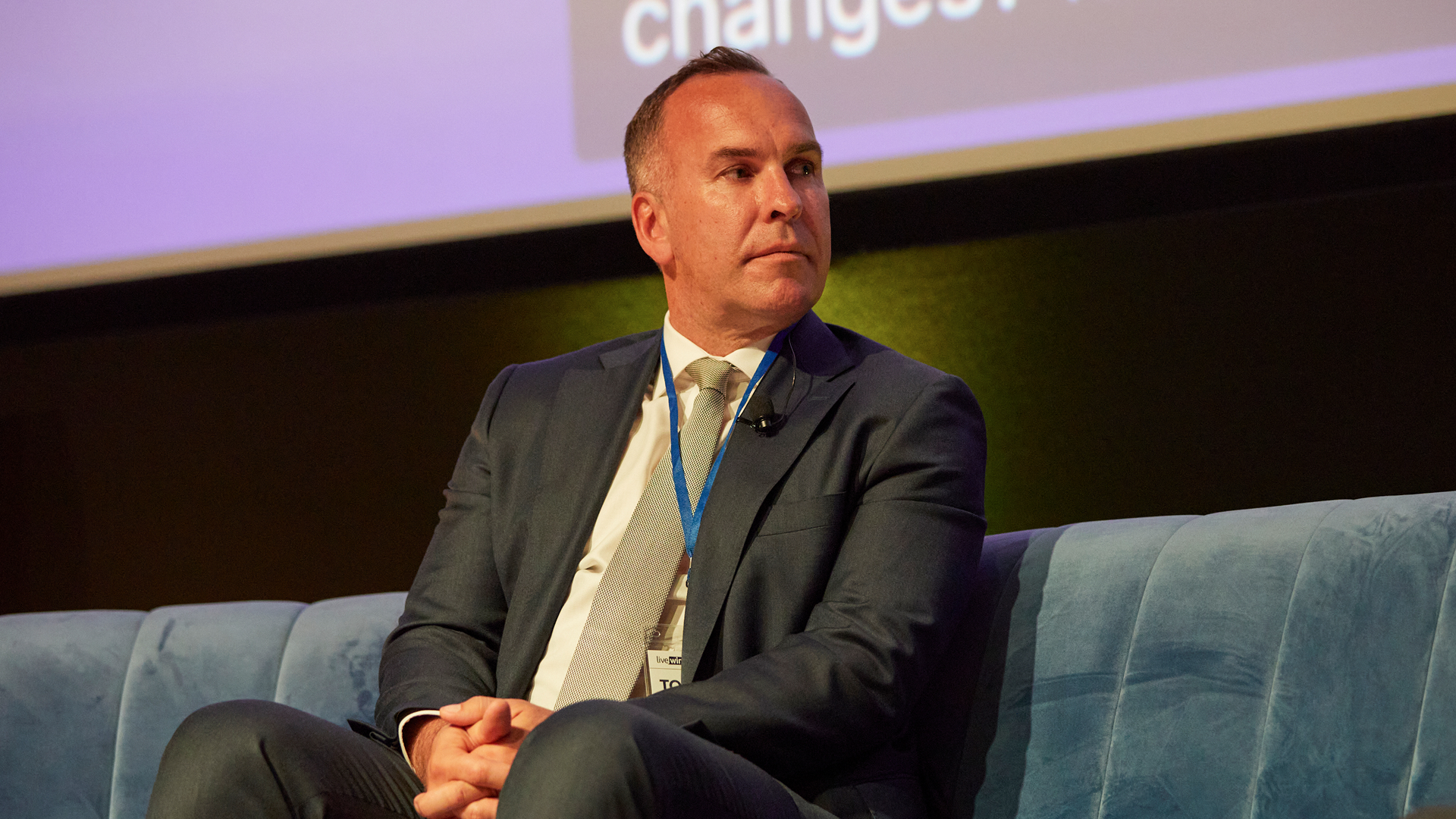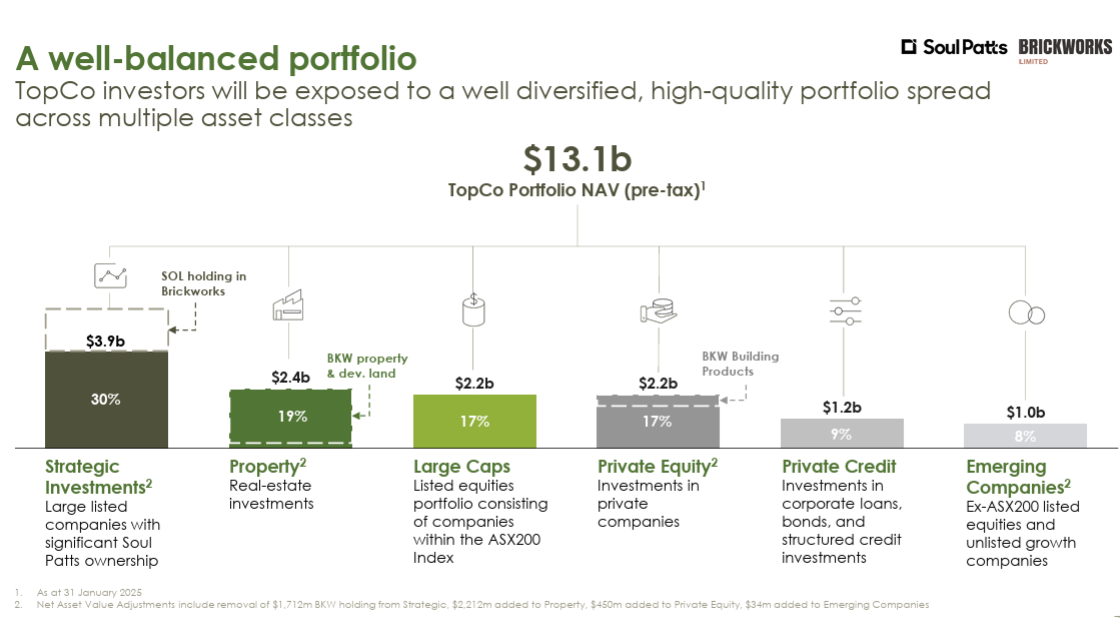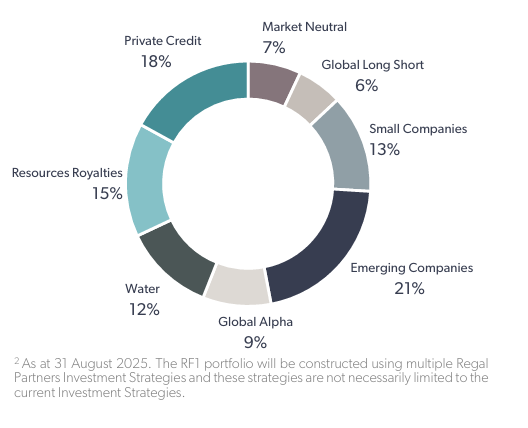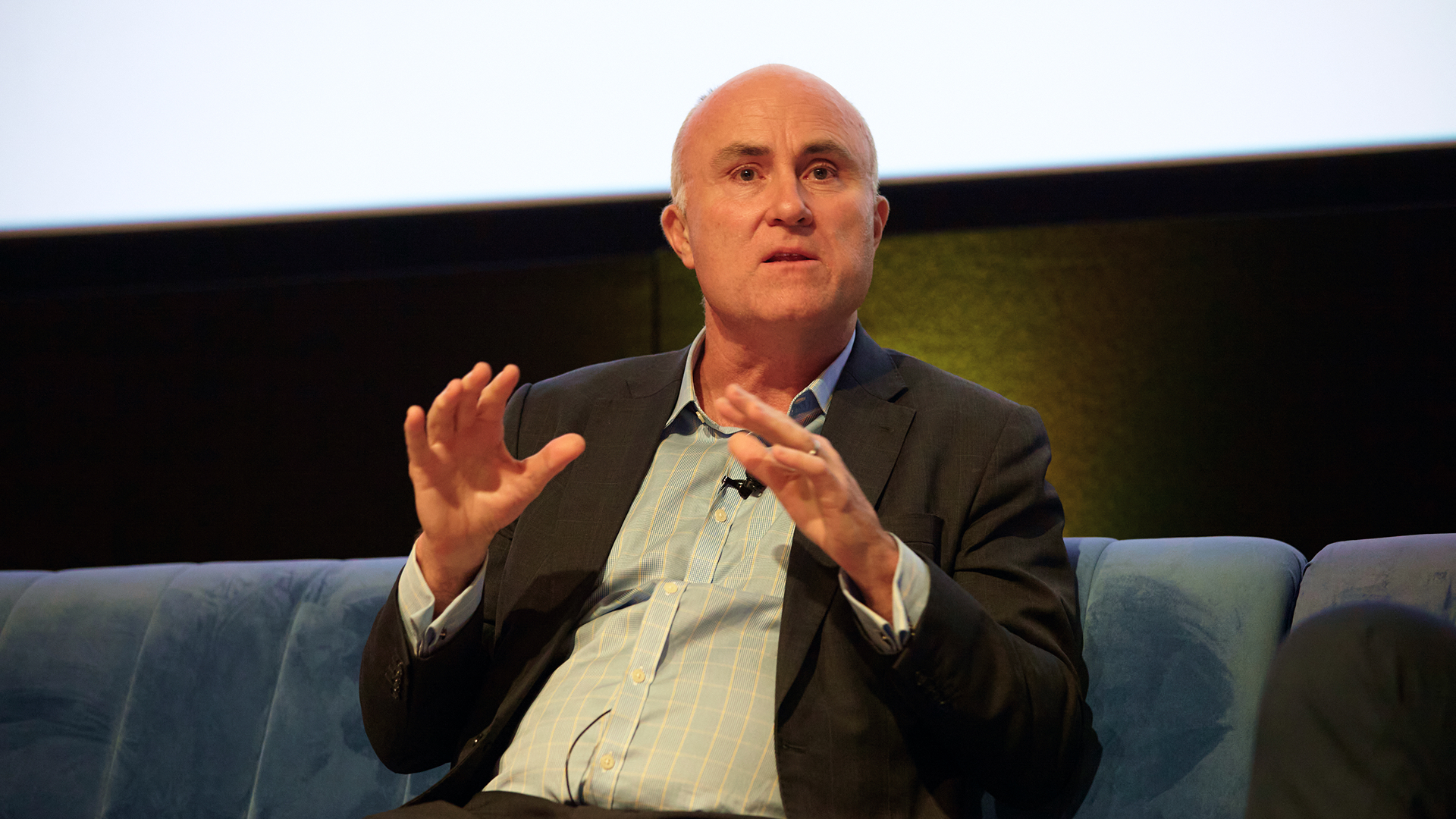A look inside the portfolios of Australia's leading investors
With a market cap north of $16 billion, Washington H. Soul Pattinson (ASX: SOL) has become one of the largest and most enduring investment houses in Australia. Under CEO Todd Barlow, the conglomerate’s portfolio now spans private credit, industrial property, building products, and listed equities - a far cry from its beginnings as a family pharmacy business.
At the other end of the spectrum is Regal Funds Management, founded by Phil King. In just two decades, the operator of the Regal Investment Fund (ASX: RF1) has grown into one of the country’s most coveted alternatives investors.
We brought both figures together on stage at Livewire Live 2025, with Matthew Kidman of Centennial Asset Management guiding the conversation. What followed was a candid and wide-ranging discussion about how they’re thinking about investing in today’s markets.
Here are seven key moments from the session and what they mean for investors. We highly recommend watching the full discussion in the video above.
1. Australia’s top investors can’t get enough private credit
.jpg)
“If I could allocate double to [private credit], I would.” - Barlow
With a comment like that, it’s hard not to sit up and take notice.
When the head of one of Australia’s largest investment houses says he’d happily double his allocation to private credit, the credibility of the asset class instantly goes up a notch - even with the regulatory shroud that still hangs over it.
And this isn’t small money. As part of its pitch to merge with Brickworks, Soul Patts revealed it already had around 10% of its portfolio - roughly $1.2 billion - in private credit. Barlow wishes it were much more.

His peer was equally bullish - Regal's listed investment company has nearly 20% assigned to private credit.
“It’s exciting. We’ve gone into things like private credit where we still think there’s huge opportunities getting double-digit returns — without the volatility of equities.” - King
The challenge with increasing allocations is that the best deals are scarce, highly negotiated, and rarely open to everyday investors. That scarcity explains why listed private credit vehicles and diversified managers are gaining traction. They provide access to what is usually a closed market.

2. Equity-like returns with less risk
“When things go wrong, equity gets wiped out before credit suffers $1 of loss.” - Barlow
The question then naturally arises: why the fascination with private credit?
It’s the dream for investors: 13–14% returns without the gut-churning drawdowns of bear markets. That’s exactly why Barlow and King are such fans.
For them, it’s not just about attractive returns, but also about protection. Private credit acts as a defensive layer that still delivers equity-like outcomes. If things go wrong, the lender has significant recourse over assets, unlike equity investors, who can be wiped out overnight.
Because credit holders sit higher in the capital stack, they’re cushioned when markets wobble.
3. ASX large caps losing their shine
.jpg)
“Australia has one of the highest multiples and one of the lowest growth rates compared to overseas markets.” - King
Turning to the bread and butter of most portfolios, the news isn’t good for ASX investors.
King was blunt: Australia’s large-cap names are expensive, sluggish, and uninspiring. He’s slashed exposure to the ASX 50, preferring to hunt in more fertile ground. Barlow wasn’t as brutal, but conceded that if your portfolio leans too heavily on the top end, you’re in “nervous territory.”
4. The tide is turning for ASX small caps
“For five to 10 years, industry funds have been selling small caps and buying large caps. That’s created an opportunity.” - King
Are small caps finally shaking off the cobwebs after a decade in the shadows? King thinks so.
He reckons years of forced selling by super funds - chasing cheap, passive exposure tilted to the big end of town - has left plenty of small companies undervalued and under owned. That neglect has created a fertile hunting ground for nimble managers like Regal.
One stock he pointed to was Chrysos (ASX: C79), a gold-testing technology business with the potential to reshape how the industry operates.
5. Resources and the prospect of a supercycle
"On the demand side for gold at the moment, you've got the best buyer in the world and that's global central banks ... they've got more money in gold now than they do in US treasuries and we think their cheque book is basically the biggest in the world and they'll keep buying." - King
If King sounded excited about small caps, he was positively energised about resources - especially the shiny kind.
Alongside L1 Capital’s Mark Landau, who was also banging the drum for gold at Livewire Live, King argued the stars are aligning: supply is tight, new projects are scarce, and global central banks are buying gold hand over fist. As a result, conditions are ripe for another commodity supercycle.
6. Housing: buying Brickworks at the bottom of the cycle
“We were picking up Brickworks at the bottom of the cycle. We’ve got a record underbuild of houses, so it has to turn.” - Barlow
While King looked to gold, Barlow looked closer to home. For Soul Patts, folding Brickworks into its portfolio was about timing - buying a cyclical business at its low point. With Australia facing a chronic housing shortage, Barlow believes construction will rebound.
7. Evergreen portfolios over market timing
“We’re really trying to create a portfolio that will perform through any economic cycle. There are no sacred cows in the portfolio anymore.” - Barlow
Even Australia’s best investors aren’t buying something and holding it forever. Once an asset has served its purpose or isn’t delivering the return required, it’s sold and replaced with something better. All the while, Soul Patts is building a portfolio designed to hold up in any economy.
That line about “no sacred cows” says it all - even long-held assets get the chop if better opportunities emerge. Barlow pointed out that Soul Patts turned over $5 billion worth of assets last year, all self-funded. Recycling and regenerating the balance sheet is the engine that keeps it compounding.
His peer hit a similar note.
“Uncorrelated returns are the only free lunch in finance. You can get extra return for no extra risk - and that’s what we’re chasing.” - King
The lesson for investors? Don’t cling to yesterday’s winners. Keep recycling, keep diversifying, and keep the portfolio ready for whatever comes next.
5 topics
2 stocks mentioned
1 contributor mentioned


